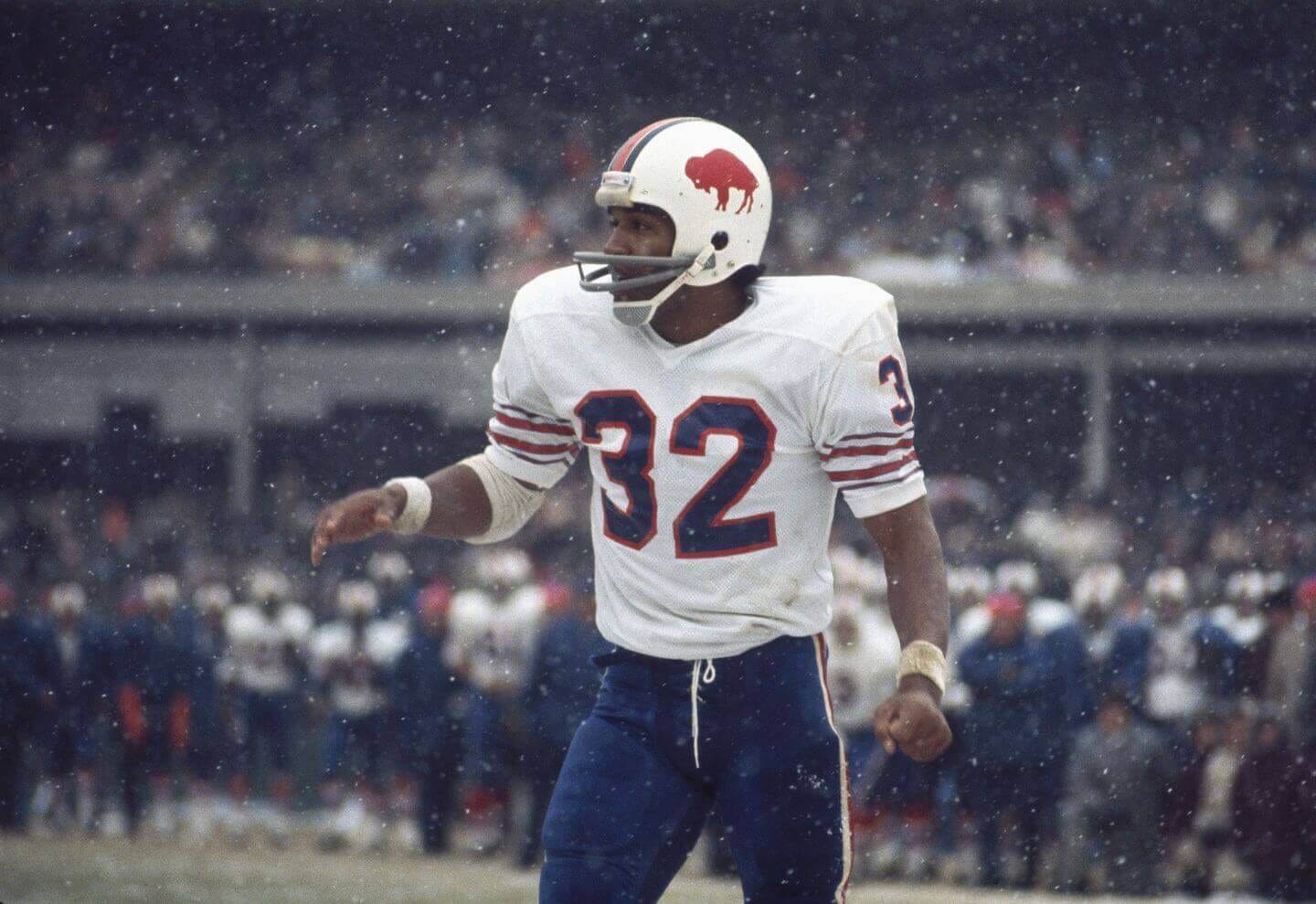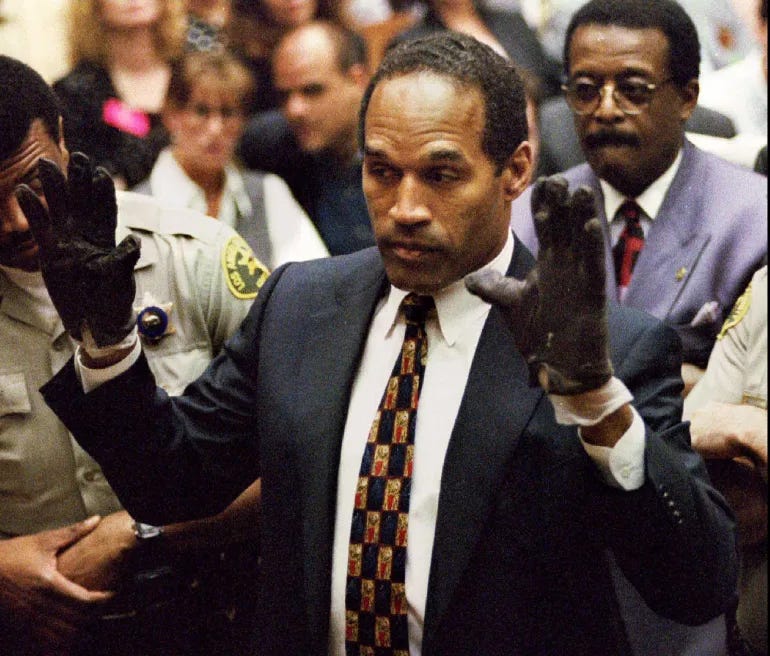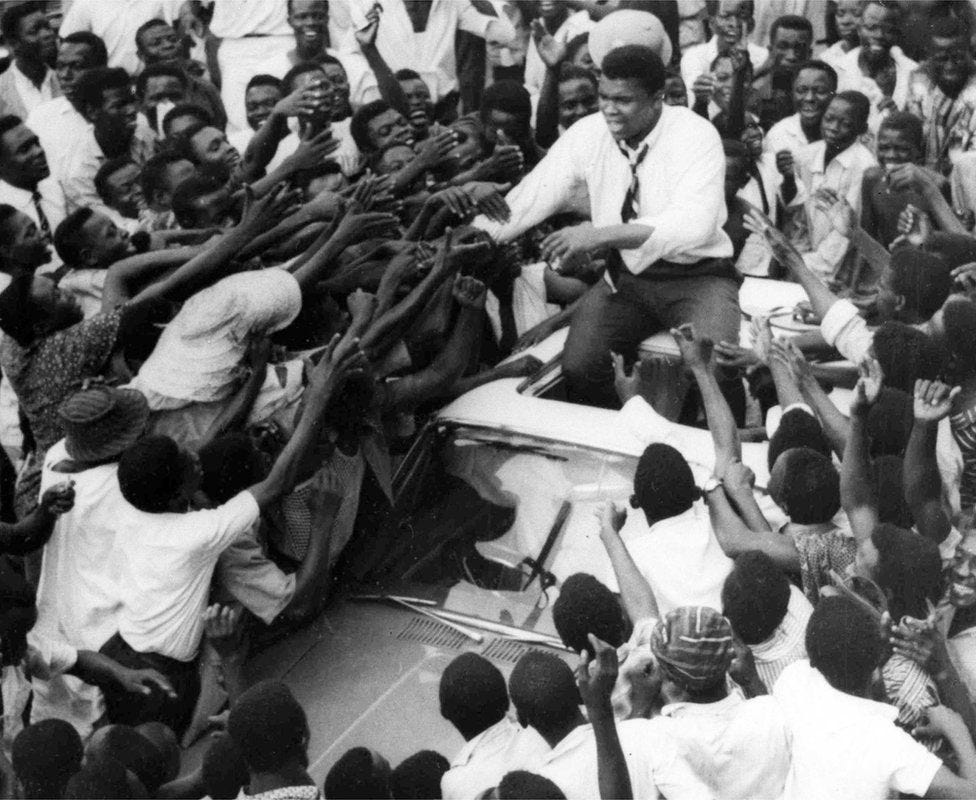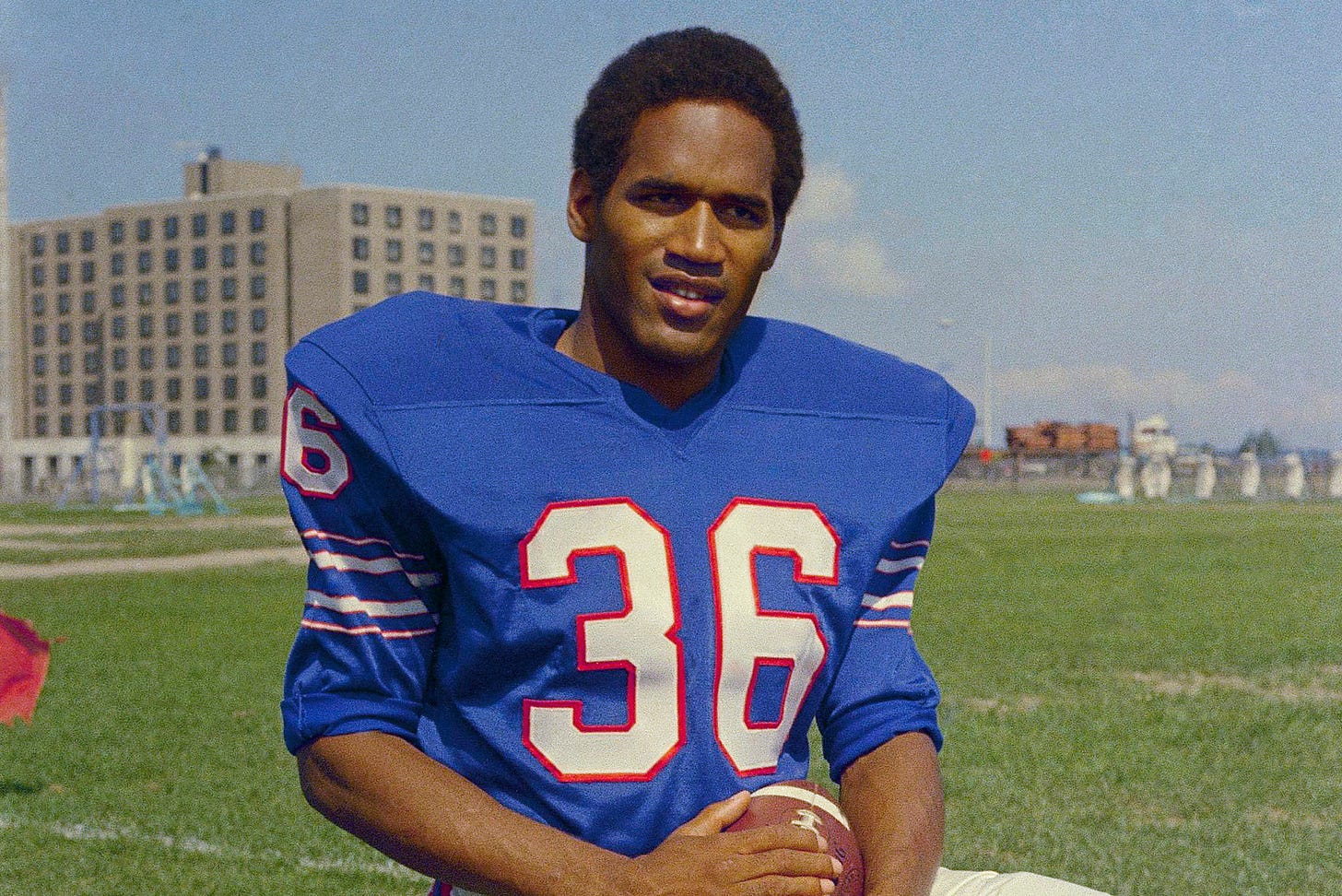OJ Simpson, The "Lost Son" Of Africa Who Never Looked Homeward
Unlike Muhammad Ali, who used his platform to fight for racial equality and forge a connection with Africa, OJ Simpson’s focus remained largely within the United States.
The news came in an announcement through the official Twitter account of OJ Simpson. And it was sober, but final and unyielding.
“On April 10th,” the announcement says, “our father, Orenthal James Simpson, succumbed to his battle with cancer. He was surrounded by his children and grandchildren.”
The rest of it is a plea of a standard kind—a plea that the family's wishes for “privacy and grace” be respected. This request is more than just performative—more than a simple thing to say as part of the ritual in times of loss. OJ Simpson was not the type whose final exit would be a quiet affair.
The Rise and Fall of OJ
OJ Simpson rose to fame as a professional American football player, gaining widespread recognition for his exceptional skills on the field.
His charisma and charm further propelled him into the world of entertainment, where he found success as an actor and a television personality.
Simpson's popularity reached its peak during the 1970s and 1980s, when he became a household name in America.
A decade later, The Juice—as he was nicknamed—found himself in the eye of a media storm.
In 1994, his ex-wife, Nicole Brown Simpson, and her friend, Ronald Goldman, were found dead, stabbed multiple times. Simpson was arrested and charged with the double murder.
Soon, America would live through a real-life nail-biting legal drama, as a team of lawyers—led by the legendary Johnny Cochrane—went to court to prove their client was no murderer.
The OJ Simpson Trial exacerbated smouldering racial tensions across America. And though it ended with his acquittal, OJ Simpson remained under the cloud of suspicion.
In fact, he never recovered from his reputation damage until he was sentenced in 2008 to serve nine years in prison after being convicted of armed robbery and of kidnapping two sports memorabilia dealers at gunpoint in Las Vegas.
But both during his hour of glory and following his downfall, OJ Simpson—unlike other prominent Black Americans such as Muhammad Ali—remained a distant phenomenon for Africa.
It’s true, some Black Americans (and boxer Floyd Mayweather is one of those) would pugnaciously argue that they are not Africans. Perhaps, because of the complex history tied to the slave trade.
But there has never been a shortage of many others identifying with their African heritage—the most prominent of them being Malcolm X, the legendary boxer Muhammad Ali, the political activist Stokely Carmichael.
And as part of an ongoing trend, Hollywood actor Samuel L. Jackson became a dual citizen in 2019 after tracing his ancestry to the Benga Tribe in the Central-African nation of Gabon.
And here the point: Despite all his global fame, OJ Simpson—in a quiet indifference that was reciprocated—never showed a notable interest in establishing a deep connection with Africa. And there are obvious reasons behind this disconnect.
Civil Rights
While someone like Muhammad Ali was known for his vocal stance on civil rights and his unwavering support for the African diaspora’s liberation, OJ Simpson remained relatively silent on these issues.
Unlike Ali, whose actions transcended the boxing ring and symbolised the struggle for racial equality, Simpson’s public persona was one of a detachment from the active civil rights movement.
This lack of engagement was no recipe for forging a meaningful connection with Africa, where the fight against the remnants of colonialism and Apartheid resonated deeply through Simpson’s years of glory.
Soccer, not football
American football, the sport in which OJ Simpson excelled, has limited popularity in Africa compared to what Americans refer to as soccer.
While Simpson’s achievements on the American football field garnered admiration in the United States, the sport did not have the same massive following on the African continent.
Muhammad Ali, on the other hand, captured the hearts of Africans through his transcendent boxing matches, most notably the Rumble in the Jungle in Kinshasa, Congo, where he fought George Foreman.
Ali’s charisma and his symbolic role in promoting African pride resonated deeply, transcending cultural and geographical boundaries.
Missing Symbolism
Any other reason for OJ Simpson’s failure to connect with Africa as Muhammad Ali did is more challenging to pinpoint.
However, one could argue that Simpson’s complex personal life and the subsequent high-profile murder trial overshadowed any potential cultural or political symbolism that could have resonated with Africans.
Ali, in contrast, embodied the spirit of resistance against oppression, and his larger-than-life persona represented the fight against racial and social injustices.
This cultural and political symbolism played a significant role in Ali’s connection with the African continent, leaving Simpson in his shadow.
No, OJ Simpson owed Africa nothing—and conversely. So, this is not a lament about some metaphorical lost son of the Motherland.
It’s just an insight into why the news of his death may have less of an emotional sway in Africa than it appears in US media reports.







